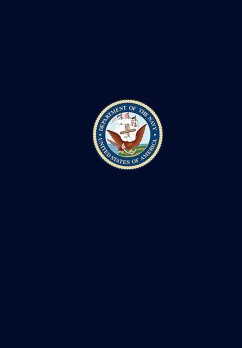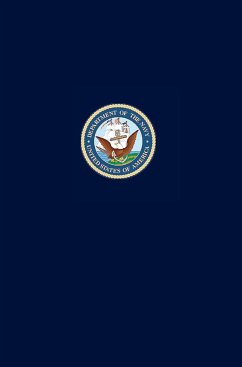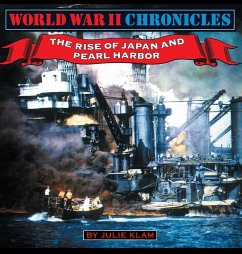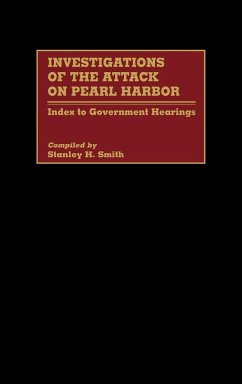
On the Treadmill to Pearl Harbor
The Memoirs of Admiral James O. Richardson
Versandkostenfrei!
Versandfertig in 1-2 Wochen
33,99 €
inkl. MwSt.
Weitere Ausgaben:

PAYBACK Punkte
17 °P sammeln!
Endless debates have raged over the reasons the Japanese were able to execute their surprise attack on the U.S. Navy's Pacific Fleet at Pearl Harbor so successfully. Military neglect, political and diplomatic ineptitude, and even what could only be described as accusations of malfeasance against the President of the United States all have been argued and reargued for more than 60 years. One key source of information for this ongoing and sometime passionate discussion is "On the Treadmill to Pearl Harbor: the Memoirs of Admiral James O. Richardson". As commander of the U.S. Fleet in 1940 and 19...
Endless debates have raged over the reasons the Japanese were able to execute their surprise attack on the U.S. Navy's Pacific Fleet at Pearl Harbor so successfully. Military neglect, political and diplomatic ineptitude, and even what could only be described as accusations of malfeasance against the President of the United States all have been argued and reargued for more than 60 years. One key source of information for this ongoing and sometime passionate discussion is "On the Treadmill to Pearl Harbor: the Memoirs of Admiral James O. Richardson". As commander of the U.S. Fleet in 1940 and 1941, Admiral Richardson was in a unique position to observe and reach conclusions about the readiness or lack of readiness of the fleet, as well as the political atmosphere in which crucial strategic and tactical decisions were reached. Because many crucial naval records perished at Pearl harbor, Admiral Richardson's recollections, as told to Rear Admiral George C. Dyer, constitute an important primary source for war plans, including War Plan Orange for operations in case of a war with Japan. He also addresses his deep concern about the lack of preparedness of the Navy, particularly its low prewar staffing levels, and the folly of sending a poorly prepared naval force to Pearl Harbor as a deterrent to aggression by a better prepared Japanese fleet. He forthrightly places much of the blamed for this situation on President Roosevelt and his advisers. Interestingly, in light of the many conspiracy theories surrounding December 7, 1941, he criticizes these men for consistently underestimating the Japanese threat rather than courting an attack as a way of embroiling the U.S. in the war. On the Treadmill to Pearl Harbor is an important source for naval historians and students of World War II, as well as an intriguing first-person account of the crucial months preceding "the day of infamy". Originally published in 1973. 558 pages, ill.














